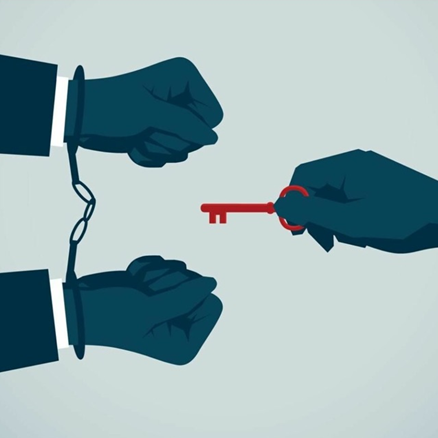Insights < BACK TO ALL INSIGHTS
How Thick is the Blanket? – Preemptive Pardons as a Presidential Power
How Thick is the Blanket? – Preemptive Pardons as a Presidential Power
By: James Trusty
As the presiding judge scolded Hunter Biden’s attorneys this week, “The Constitution provides the President with broad authority to grant reprieves and pardons for offenses against the United States, U.S. Const. art. II, § 2, cl. 1, but nowhere does the Constitution give the President the authority to rewrite history.”[1] But what exactly is that history he claims is being re-written? Judge Scarsi was challenging the largely academic issue of whether a pardon signed at noon, for instance, protects against crimes committed on the same day at dinnertime. That is a very limited run at the notion of “preemptive” pardons, and it seems to be strictly a question of chronology. The judge did not seem to question the idea of pardoning uncharged conduct. The larger question that remains, then, is whether a pardon can be a protective blanket spread out over time (10 years in Hunter’s case) or whether it has to be wedded to a particular context or prosecution, i.e., federal charges.
Answering that question seemingly starts and ends with a post-Civil War opinion that primarily addressed former Confederates practicing law before the Supreme Court. In Ex parte Garland, 71 U.S. 333, 380 (1866) a 5-4 majority of the Court stated that, “The power of pardon conferred by the Constitution upon the President is unlimited except in cases of impeachment. It extends to every offence known to the law, and may be exercised at any time after its commission, either before legal proceedings are taken or during their pendency, or after conviction and judgment. The power is not subject to legislative control. (emphasis added). The Confederate lawyer seeking to practice before SCOTUS received a conditional pardon in 1865 – to receive its full benefit he had to disclaim any ongoing use of slaves or slave property, and he had to notify the federal government that he was in fact accepting the pardon.
Garland’s pardon was for “offences by him committed, arising from participation, direct or implied, in the said Rebellion.” While the potential crimes were inherently limited to those associated with the Rebellion (as opposed to more “personal” offenses committed without concern to the rebel cause), the pardon is also clear in its broadness. The protection applies to “every offence known to the law” without referring to a specific indictment or case. It was, then, a form of preemptive, i.e. blanket, immunity.
As rumors begin to swirl of similarly broad pardons being contemplated for Jack Smith, Adam Schiff, Liz Cheney and Dr. Anthony Fauci, it seems an apt time to consider the extent to which Garland will be challenged or be viewed as solidly precedential. It was, after all, a 5-4 opinion where the pre-emptive nature of Garland’s pardon was not really the issue. And keep in mind the maxim that “bad facts make bad law.” Meaning, in the case of Hunter Biden, that his weak-kneed prosecution and unlimited pardon could fuel the fire that the Biden Family was engaged in a pay-to-play conspiracy that was soft-peddled and stalled by a partisan DOJ. Now, the pardon appears as if a final confirmation that when the Biden Administration righteously announced that, “No one is above the law,” they were snickering. If nothing else, it could be an interesting Congressional moment to bring Hunter before a Committee where he no longer has any ability to claim a 5th Amendment privilege because the broad immunity he received means he has no reasonable likelihood of criminal prosecution, and thus the privilege is now inapplicable.
While Hunter’s pardon may be a broad and distasteful one, there have been other pardons over the years that include time frames rather than simply indictment numbers. President Ford’s pardon of Richard Nixon stands out as a pre-emptive one (1969-1974), but even pardons linked to specific prosecutions often say “for all offenses” that may be charged in relationship to that specific case.
Assuming Garland’s continued vitality as to the lack of any Congressional power to define or to contest pardons, the only way preemptive pardons will ever face challenges are if a) a sitting president rebels at the idea of broad protection—which would be a surprisingly self-limiting moment; or b) if a federal prosecutor or Special Prosecutor decides to pursue a case against a recipient, notwithstanding the political fallout and perhaps even liability for prosecuting someone who is seemingly immune to such an effort. Then, and only then, could we see a Supreme Court revisiting of the post-Civil War jurisprudence.
My bet is that President Trump might not enjoy the prospect of lawfare proponents getting a free pass during President Biden’s waning moments, but the ability to treat the pardons as confirmation of a weaponized DOJ might be more satisfying than poking the Garland bear and limiting his own power to similarly pardon.
[1] https://storage.courtlistener.com/recap/gov.uscourts.cacd.907806/gov.uscourts.cacd.907806.239.0.pdf





